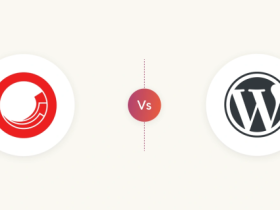Navigating child custody decisions can feel overwhelming. You want what’s best for your children. In New Hampshire, understanding the process helps ease uncertainty. Judges make decisions based on your child’s best interests. They consider factors like your child’s needs, your ability to meet those needs, and the relationship between you and your child. Both parents’ roles are important. New Hampshire courts encourage shared responsibility whenever possible. However, they prioritize stability and safety for your child. If disputes arise, a New Hampshire child custody lawyer provides guidance. They explain legal options and help you advocate for your child’s welfare. The court examines various aspects of family dynamics, past parental involvement, and each parent’s willingness to foster a positive relationship with the other parent. Evaluations and interviews offer insight into your child’s living situation. Prepare for a process that seeks fairness and focuses on making decisions that benefit your child the most.
Understanding Legal and Physical Custody
In New Hampshire, custody encompasses two main components: legal and physical custody. Legal custody involves decision-making rights regarding education, health care, and religion. Physical custody refers to where your child lives. Courts often grant joint legal custody, promoting shared decision-making. Physical custody can be sole or shared, depending on what arrangement suits your child best.
Factors Influencing Custody Decisions
New Hampshire courts examine several factors when deciding custody. The primary concern is your child’s welfare. Judges consider:
- Your child’s relationship with each parent
- Each parent’s ability to provide a stable environment
- Your child’s adjustment to home, school, and community
- Each parent’s willingness to support the child’s relationship with the other parent
- Any history of abuse or neglect
The Role of Parenting Plans
A parenting plan outlines custody arrangements, including schedules and decision-making responsibilities. Courts require parents to propose a plan. If parents agree, the court often approves it. Disagreements may lead to mediation or court intervention. A clear plan reduces conflict and provides structure for your child.
Mediation and Court Intervention
When parents cannot agree, mediation serves as a helpful tool. A neutral third party helps facilitate discussions to reach a mutually beneficial agreement. If mediation fails, the court steps in to decide. Court involvement may lengthen the process, but ensures decisions focus on your child’s best interests.
| Factor | Impact on Custody Decision
|
|---|---|
| Parent-Child Relationship | Strong ties favor shared or primary custody |
| Stability and Environment | Stable home influences custody favorably |
| Parental Cooperation | Good cooperation supports joint custody |
| Abuse History | Abuse leads to restricted custody |
Adjusting to Custody Arrangements
After a decision, adapting to new arrangements takes effort. Communication between parents is key. Focus on your child’s well-being. Consistency and routine help your child adjust. Be patient and provide reassurance during transitions. Encourage open conversations with your child about their feelings.
Resources for Families
Several resources assist families during custody proceedings. The New Hampshire Judicial Branch website offers valuable information on family law and court procedures. Additionally, consider reaching out to local support groups and counseling services for guidance and emotional support during this challenging time.
Child custody decisions in New Hampshire aim to support your child’s best interests. Being informed and prepared makes the process smoother. Prioritize communication and cooperation with the other parent. Seek help when needed and focus on providing a nurturing environment for your child. With dedication and understanding, you can navigate this process with confidence and care.










































Leave a Reply